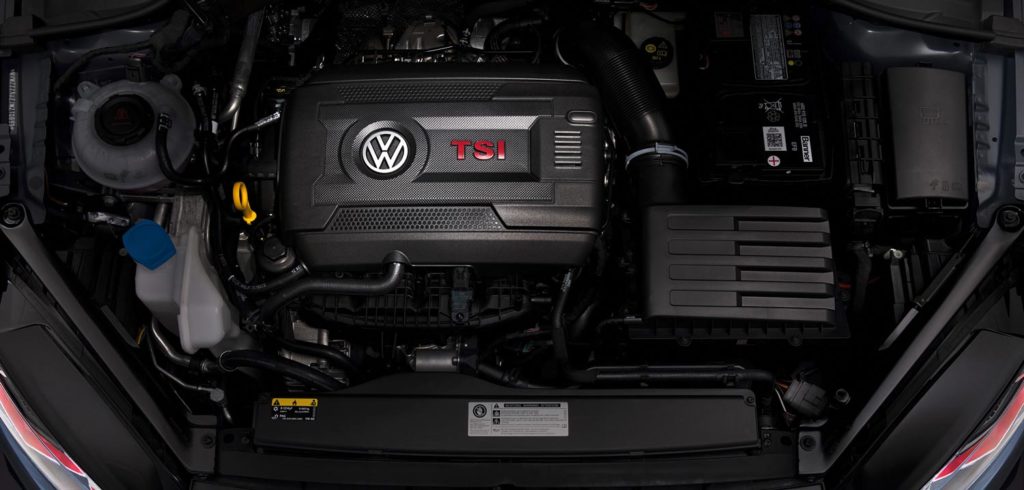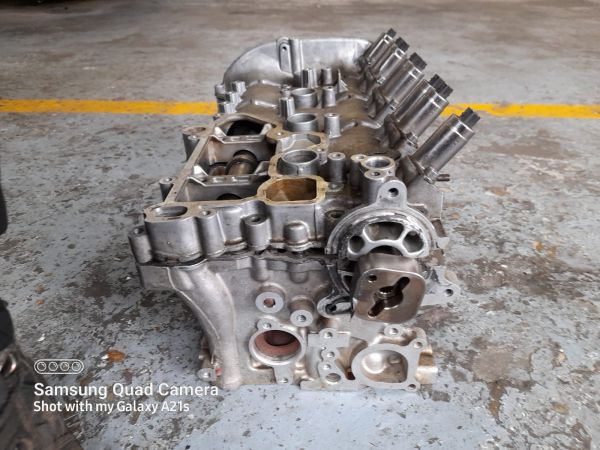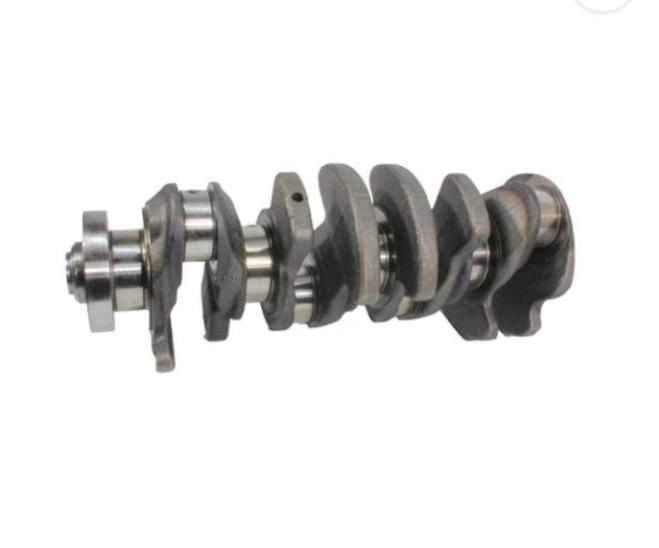Understanding the Golf 7 GTI Engine: Key Specifications and What They Mean for You
Understanding the Golf 7 GTI Engine: Key Specifications and What They Mean for You
Blog Article
Your Guide to the Golf 7 GTI Engine: Reliability and Upgrades
The Golf 7 GTI, equipped with its 2.0-liter turbocharged inline-four engine, represents a balance of efficiency and reliability that attract fanatics and day-to-day vehicle drivers alike. Comprehending the aspects that add to its dependability, along with potential problems and their services, is essential for optimizing the driving experience. In addition, exploring various efficiency upgrades can dramatically enhance both power and efficiency. The concern continues to be: what specific upgrades can transform your GTI into a genuinely phenomenal vehicle while guaranteeing its longevity?
Overview of the Golf 7 GTI Engine
The heart of the Golf 7 GTI is its 2.0-liter TSI engine, a turbocharged four-cylinder that supplies an excellent blend of power and effectiveness. This engine generates a robust 220 horse power and 258 lb-ft of torque, enabling the lorry to speed up from 0 to 60 mph in simply 5.6 secs, showcasing its flashy personality. The turbocharged layout not just enhances efficiency however also enhances gas performance, making it a sensible selection for everyday driving.
Including sophisticated innovation, the engine includes direct gas injection, which enhances combustion effectiveness and decreases exhausts. Additionally, the Golf 7 GTI is furnished with either a six-speed handbook or a six-speed DSG dual-clutch automated transmission, offering vehicle drivers with the flexibility to select their preferred driving style. The vehicle's front-wheel-drive layout, combined with a well-tuned suspension, makes certain nimble handling and a receptive driving experience.
Engine Reliability Factors
Integrity is a vital element of any performance-oriented car, and the Golf 7 GTI's engine is no exemption. Numerous elements contribute to the total reliability of this very pertained to powerplant, which is vital for both everyday driving and perky efficiency.
To Start With, the Golf 7 GTI is furnished with a durable 2.0-liter turbocharged inline-four engine, known for its efficient design and solid engineering. This engine includes a forged steel crankshaft and aluminum engine block, which offer premium strength and longevity while minimizing weight.
Secondly, regular maintenance plays a crucial function in improving engine integrity. Abiding by the manufacturer's recommended service periods, utilizing top notch lubricants, and changing crucial components such as trigger filters and plugs can considerably expand engine life.
Furthermore, the high quality of fuel used can likewise affect dependability. Premium fuel is recommended to make certain optimum efficiency and minimize the threat of knocking or ignition.
Last but not least, the automobile's digital monitoring system continually checks engine criteria, enabling real-time adjustments to maximize efficiency and effectiveness while safeguarding against possible problems. Collectively, these factors underscore the Golf 7 GTI engine's reputation for reliability amongst fanatics and everyday motorists alike.
Usual Concerns and Solutions
The Golf 7 GTI, while commemorated for its performance, is not without its obstacles. Among one of the most frequently reported issues are engine oil usage and turbocharger failings, which can dramatically impact vehicle reliability. Recognizing these typical problems and their remedies is crucial for preserving optimal engine efficiency.

Engine Oil Usage
While numerous enthusiasts appreciate the efficiency of the Golf 7 GTI, engine oil intake can emerge as a significant worry. Owners might observe that their vehicles require even more frequent oil top-ups than expected, commonly connected to various elements inherent in the engine's design and operation.
One common issue is the engine's direct gas shot system, which can lead to raised oil usage as a result of the burning process. Furthermore, the use of high-performance driving routines can exacerbate oil burn-off, especially under hostile throttle problems. Chauffeurs might likewise experience oil leakages from seals and gaskets, which can add to decreased oil levels.
Regular oil adjustments making use of premium synthetic oil can help preserve optimal engine performance and durability. If excessive intake continues, it might be recommended to speak with a specialist technician to assess the engine for prospective interior issues, such as worn piston rings or valve seals.
Turbocharger Failings
Turbocharger failures can considerably influence the performance of the Golf 7 GTI, leading to reduced power and effectiveness. Oil leaks often stem from used seals or damaged gaskets, which can lead to oil contamination and succeeding engine damages.
One more prevalent problem is wastegate failure, which can result in overboost or underboost problems. If left untreated, this not just impacts the vehicle's efficiency however can likewise lead to serious engine damage. Updating to a more robust wastegate can boost dependability and performance.
Extreme shaft play shows wear in the turbocharger's bearings, which can cause a total turbo failing. Keeping track of increase pressure and paying attention for unusual noises can assist find this trouble early.
To prevent turbocharger failings, normal maintenance, including oil changes and air filter replacements, is crucial. Furthermore, purchasing top quality aftermarket elements might offer better integrity and efficiency, eventually improving the driving experience of the Golf 7 GTI.
Performance Upgrades to Think About
What performance upgrades can really elevate the driving experience of a Golf 7 GTI? To release the complete possibility of this iconic hot hatch, a number of targeted alterations can boost power, dealing with, and total driving pleasure.
One of the most effective upgrades is a high-performance turbocharger. Replacing the supply device with an aftermarket alternative can considerably raise horse power and torque, delivering a more electrifying acceleration experience. Matching this upgrade with a performance intercooler helps keep optimum temperature levels, making certain regular power shipment.
Next, consider upgrading the exhaust system. A much less limiting exhaust not just enhances engine efficiency yet also generates a more hostile audio that enhances the cars and truck's sporty personality. Pairing this with a remapped ECU will certainly maximize fuel shipment and ignition timing, additional increasing performance.
Suspension upgrades, such as flexible coilovers, can improve handling by lowering the car's center of gravity and decreasing body roll. Additionally, a set of high-performance tires will certainly enhance grip, allowing for sharper cornering and enhanced general security.
Together, these upgrades can transform the Golf 7 GTI into a more awesome and dynamic driving machine, making every trip an extraordinary experience. golf 7 gti engine.
Recommended Maintenance Practices
Maintaining the Golf 7 GTI engine calls for interest to essential practices that ensure optimal performance and longevity. Normal oil changes are crucial for engine wellness, while prompt timing belt substitute is essential to stop potential failures. Applying these maintenance methods will aid maintain your automobile running efficiently and effectively.
Routine Oil Adjustments
Routine oil adjustments are vital for the optimal performance and longevity of browse this site the Golf 7 GTI's engine. Keeping a regular oil modification timetable makes certain that the engine operates smoothly and efficiently. The advised period for oil changes is generally every 5,000 to 10,000 kilometers, relying on driving problems and the sort of oil used.
Utilizing top notch synthetic oil is essential as it provides premium lubrication and thermal stability compared to conventional oils. This is particularly important for the Golf 7 GTI, which includes a turbocharged engine that creates higher operating temperatures. Routine oil adjustments help to remove pollutants and sludge build-up, which can compromise engine performance and cause early wear.
Additionally, fresh oil enhances fuel efficiency and reduces hazardous emissions, adding to a cleaner environment. During the oil change procedure, it is also suggested to replace the oil filter to make certain optimal purification and stop any type of particles from going into the engine. Sticking to these techniques not only aids keep the engine's integrity however likewise protects the value of the car, making normal oil alters a crucial aspect of liable GTI possession.
Timing Belt Replacement
The timing belt is an important part of the Golf 7 GTI's engine, in charge of synchronizing the rotation of the crankshaft and camshaft. This synchronization is necessary for optimum engine efficiency and effectiveness. If the timing belt falls short, it can cause devastating engine damage, making prompt substitute essential.

When planning a timing belt substitute, it is advisable to also change the water pump and tensioner. These parts function in combination with the timing belt and usually experience comparable wear, guaranteeing optimal efficiency and long life. Using OEM parts is suggested for their integrity and compatibility with the Golf 7 GTI's engine.
Professional setup is highly encouraged, as incorrect setup can bring about serious engine breakdowns. Routine maintenance of the timing belt not only secures the stability of the engine but additionally boosts the total driving experience of the Golf 7 GTI. golf 7 gti engine. Prioritizing this task assists preserve vehicle integrity and performance in time
Aftermarket Components and Modifications
Numerous fanatics transform to aftermarket components and alterations to improve the efficiency and visual appeals of the Golf 7 GTI. These upgrades can substantially improve the lorry's responsiveness, taking care of, and total driving experience. Popular adjustments include high-performance air consumptions, exhaust systems, and intercoolers, which can raise horsepower and torque by maximizing air consumption and exhaust flow.
Suspension upgrades are also prevalent, with alternatives varying from lowering springs to completely adjustable coilover kits that boost experience high quality and cornering ability. Updated brakes, consisting of performance pads and blades, can supply much better stopping power, making certain security and control throughout spirited driving.
Aesthetic alterations, such as aftermarket wheels, body kits, and personalized lighting, allow proprietors to customize their lorries while preserving a stylish appearance. Engine adjusting, whether with ECU remapping or standalone engine administration systems, can unlock extra performance potential, making the GTI a lot more electrifying to drive.
While aftermarket alterations can produce considerable benefits, it's important to choose reliable brands and take into consideration the prospective effect on warranty and dependability. Proper installation and adjusting are important to ensure the longevity of the automobile while taking pleasure in the improvements.
Enhancing Fuel Effectiveness
Improving fuel effectiveness in the Golf 7 GTI can lead to substantial cost financial savings and a minimized ecological impact. Achieving much better fuel economic situation calls for a combination of driving behaviors, maintenance techniques, and calculated alterations.
One effective approach is embracing a smooth driving design, avoiding rapid acceleration and hefty braking, which can drastically lower fuel usage. Preserving optimum tire stress is additionally crucial; under-inflated tires can enhance moving resistance, causing decreased effectiveness. Regular maintenance, consisting of engine tuning and air filter replacements, guarantees that the engine operates at peak efficiency, better boosting gas economy.
For those seeking upgrades, think about an efficiency tune that concentrates on performance instead of sheer power. Eco-mode setups, if readily available, can change throttle feedback and change factors to make the most of fuel savings. Additionally, lightweight aftermarket wheels can reduce weight and boost performance without jeopardizing performance.
Last but not least, employing aerodynamic improvements, such as a front splitter or back looter, can minimize drag at higher speeds, adding to better gas economy. By executing these methods and alterations, Golf 7 GTI owners can enjoy enhanced gas performance while keeping the review vehicle's perky driving qualities.
Conclusion
In conclusion, the Golf 7 GTI engine exemplifies a blend of performance and reliability, driven by a well-engineered 2.0-liter turbocharged inline-four. Different performance upgrades and aftermarket modifications can best site enhance driving experience while keeping dependability.
The Golf 7 GTI, geared up with its 2.0-liter turbocharged inline-four engine, stands for a balance of efficiency and reliability that charms to lovers and daily drivers alike. Regular oil adjustments using top notch artificial oil can help maintain optimal engine efficiency and longevity.Normal oil adjustments are vital for the ideal performance and longevity of the Golf 7 GTI's engine. Normal servicing, consisting of engine adjusting and air filter substitutes, makes sure that the engine operates at peak performance, better boosting fuel economic climate.

Report this page